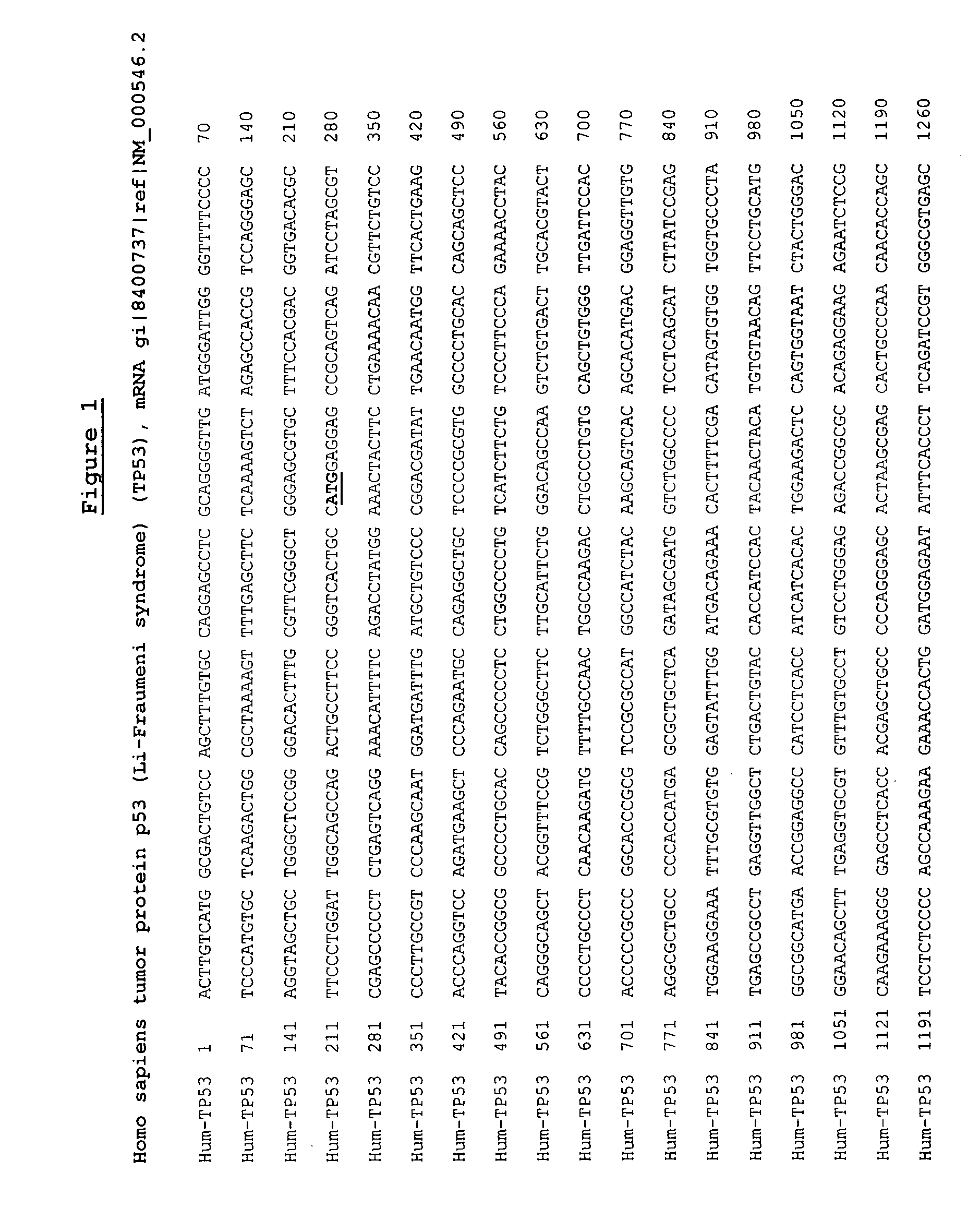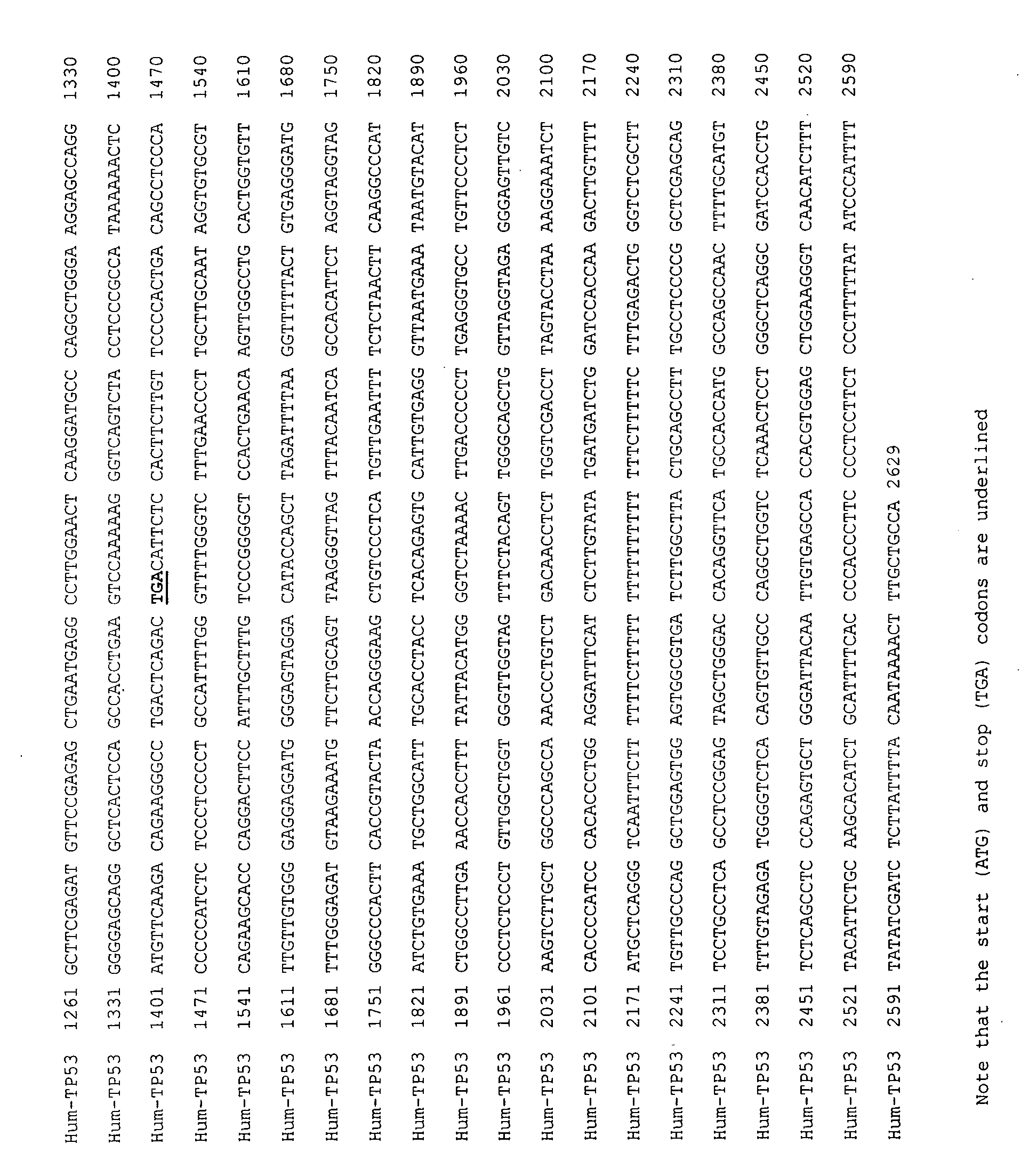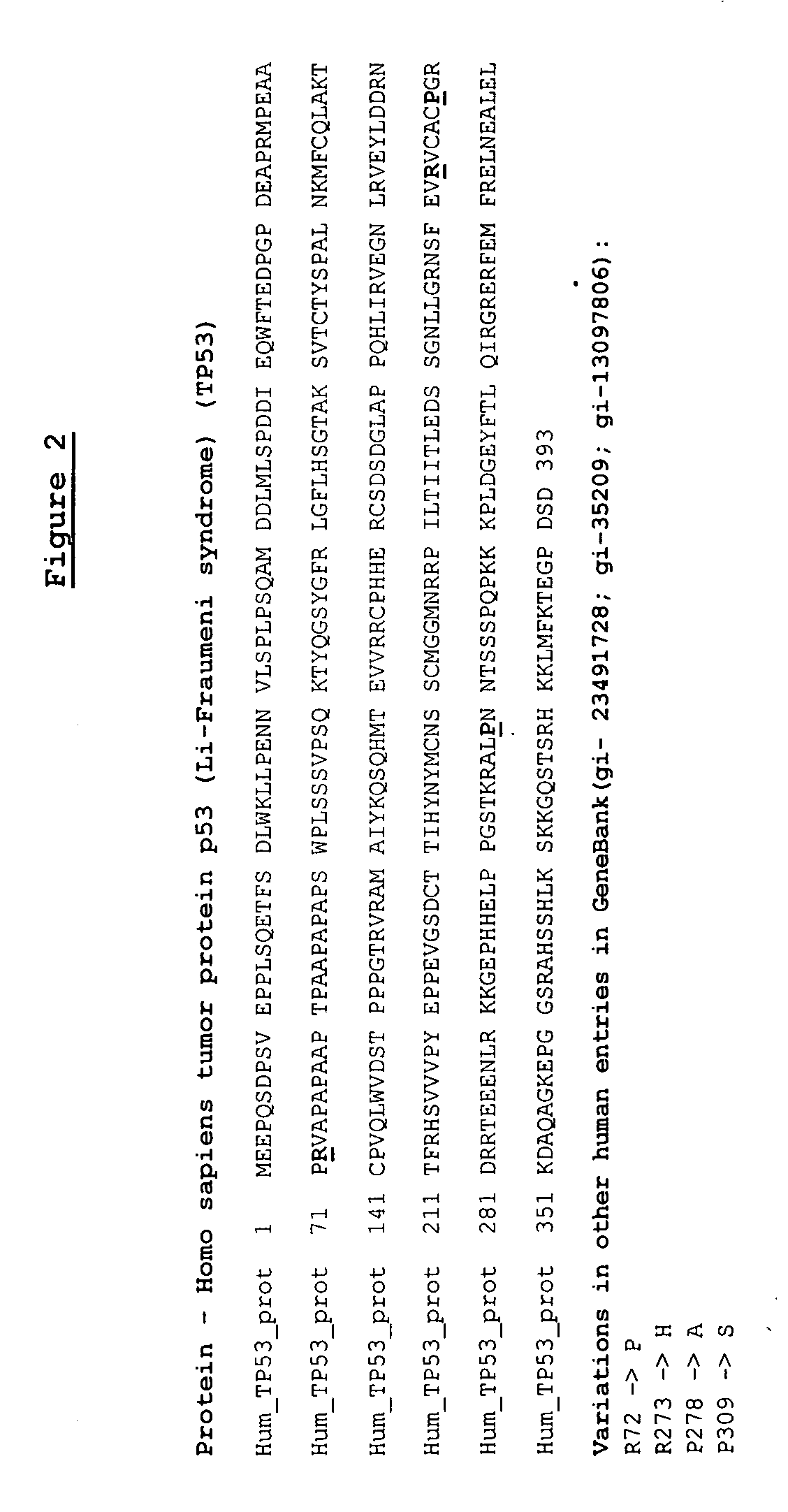Oligoribonucleotides and methods of use thereof for treatment of alopecia, acute renal failure and other diseases
a technology of oligobonucleotides and alopecia, applied in the field of oligobonucleotides and methods of use thereof for the treatment of alopecia, acute renal failure and other diseases, can solve the problems of limiting the effectiveness of these therapies, hair loss, psychological distress, etc., and achieves the effect of increasing the level of p53 polypeptide and increasing the risk of cancer
- Summary
- Abstract
- Description
- Claims
- Application Information
AI Technical Summary
Benefits of technology
Problems solved by technology
Method used
Image
Examples
example 1
Generation of Sequences for Active siRNA Compounds
[0128] Using proprietary algorithms and the known sequence of gene p53 (SEQ ID NO:1), the sequences of many potential siRNAs were generated. Table A shows 23 siRNAs which have so far been selected, chemically synthesized and tested for activity (see Example 2). All these siRNAs are 19-mers.
TABLE ANM_000546NM_011640NM_0309NumberIndexSense strandAntisense strandSpecies(human)(mouse)89 (rat)1Mo3GUACAUGUGUAAUAGCUCCGGAGCUAUUACACAUGUACmouse3 mis1232-12502 mis2Hu2′GACUCCAGUGGUAAUCUACGUAGAUUACCACUGGAGUChuman*1026-10443 mis2 mis3QHMoCAGACCUAUGGAAACUACUAGUAGUUUCCAUAGGUCUGhum, mon310-3283 mis4 misn14QHMoCUACCUCCCGCCAUAAAAAUUUUUAUGGCGGGAGGUAGhum, mon1378-13961 mis1 misn25QH1CCCAAGCAAUGGAUGAUUUAAAUCAUCCAUUGCUUGGGhuman361-379NoNo6QH2CCCGGACGAUAUUGAACAAUUGUUCAAUAUCGUCCGGGhuman389-407NoNo7QM1GAGUCACAGUCGGAUAUCAUGAUAUCCGACUGUGACUCmouseNo552-5702 mis8QM2GGAUGUUGAGGAGUUUUUUAAAAAACUCCUCAACAUCCmouseNo680-6984 mis9QM3CAUCUUUUGUCCCUUCUCAUGAGAAGGGACAAAAG...
example 2
Testing the siRNA Compounds for Anti-p53 Activity
Protocols
I. Preparation of the siRNAs (Double-Stranded Oligonucleotides)
[0134] Lyophilized oligonucleotides were dissolved in RNAse free distilled water to produce a final concentration of 100 uM. The diluted oligonucleotides were kept at room temperature for 15 min and immediately frozen in liquid nitrogen.
[0135] The oligonucleotides were stored at −80° C. and diluted before use with PBS.
II. Transfection of siRNA in Human Cells with Lipofectamine2000 Reagent:
[0136] 2×105 p53-wt HCT116 or SW480 cells were seeded per well in 6 wells plate. 24 h subsequently, cells were transfected with p53 oligonucleotides using lipofectamine2000 reagent (obtained from Invitrogen).
[0137] The following procedure was performed: [0138] 1. Before transfection, the cell medium was replaced by 1500 ul fresh medium without antibiotics. [0139] 2. In a sterile, plastic tube, Lipofectamine2000 reagent (the amount is calculated according to 5 ul per wel...
example 3
Model Systems of Hair Loss
[0161] Testing the active siRNA may be done in the following systems: [0162] a. Mouse model of hair loss [0163] b. Ex-vivo cultured human hair follicles [0164] c. Human hair follicle graft in nude mice
[0165] Note: Systems for testing the active siRNA are described in Botcharev et al, 2000, p53 is essential for Chemotherapy-induced Hair Loss, Cancer Research, 60, 5002-5006).
PUM
| Property | Measurement | Unit |
|---|---|---|
| Volume | aaaaa | aaaaa |
| Volume | aaaaa | aaaaa |
| Volume | aaaaa | aaaaa |
Abstract
Description
Claims
Application Information
 Login to View More
Login to View More - R&D
- Intellectual Property
- Life Sciences
- Materials
- Tech Scout
- Unparalleled Data Quality
- Higher Quality Content
- 60% Fewer Hallucinations
Browse by: Latest US Patents, China's latest patents, Technical Efficacy Thesaurus, Application Domain, Technology Topic, Popular Technical Reports.
© 2025 PatSnap. All rights reserved.Legal|Privacy policy|Modern Slavery Act Transparency Statement|Sitemap|About US| Contact US: help@patsnap.com



